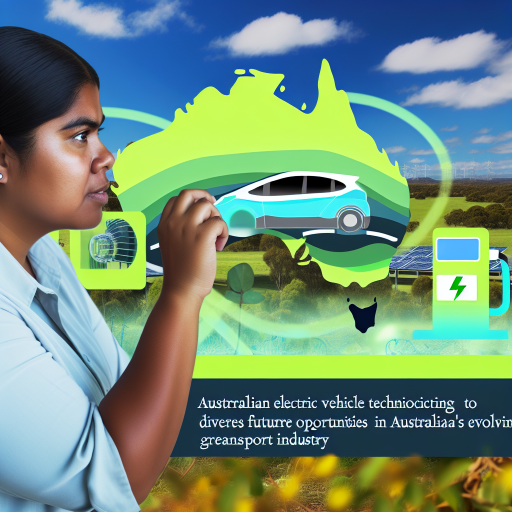Introduction
Eco-friendly trucking refers to the use of sustainable practices in the transportation industry, aiming to minimize environmental impact.
Implementing eco-friendly practices is crucial in the trucking industry to reduce pollution and contribute to a greener future.
By embracing eco-friendly practices, the trucking industry can reduce carbon emissions, decrease fuel consumption, and mitigate air pollution.
These practices include using electric or hybrid trucks, optimizing routes to minimize mileage, and adopting fuel-efficient driving techniques.
Moreover, eco-friendly trucking helps conserve natural resources, such as fuel and water, and reduces waste generation.
Additionally, it promotes the use of renewable energy sources, such as solar power, for vehicle charging stations and depots.
The focus on eco-friendly trucking extends beyond environmental benefits. It also presents economic advantages for businesses.
By adopting sustainable practices, trucking companies can improve fuel efficiency, reduce maintenance costs, and enhance their brand image, appealing to environmentally conscious customers.
The Australian trucking industry has recognized the importance of eco-friendly practices.
Several initiatives and programs, such as the National Clean Technologies Program and the Clean Energy Finance Corporation, provide support and incentives for trucking companies to transition to greener operations.
In essence, eco-friendly trucking plays a vital role in Australia’s sustainable development.
By implementing eco-friendly practices, the trucking industry can significantly reduce its environmental footprint, conserve resources, and reap economic benefits.
Embracing a greener future in the trucking industry is essential for a sustainable and prosperous Australia.
Impact of Trucking on the Environment
In Australia, the trucking industry has a significant impact on the environment.
A. Statistics on Greenhouse Gas Emissions
- Trucks are responsible for nearly 20% of Australia’s greenhouse gas emissions.
- According to the Australian Bureau of Statistics, in 2019, the road transport sector emitted 98.9 million tonnes of carbon dioxide equivalent.
- This represents a 12% increase since 2005, highlighting the growing environmental impact of trucking.
- The transport industry’s reliance on diesel fuel contributes to the emission of harmful pollutants.
B. Effects on Air Quality and Noise Pollution
- The exhaust emissions from trucks contribute to the deterioration of air quality.
- Fine particulate matter and nitrogen oxides released by trucks have adverse health effects, including respiratory problems.
- Trucks also generate significant noise pollution, especially in densely populated areas and near major highways.
- This noise pollution can disrupt sleep patterns and negatively impact overall quality of life for nearby residents.
C. Land Degradation
- Trucking activities can result in land degradation and destruction of natural habitats.
- Construction and maintenance of extensive road networks for trucks may require land clearing.
- This can lead to the degradation of ecosystems, loss of biodiversity, and fragmentation of wildlife habitats.
- Additionally, the constant movement of heavy trucks can cause soil compaction and erosion.
In essence, the trucking industry in Australia has a significant negative impact on the environment.
In order to mitigate these effects, measures such as promoting the use of electric and hybrid trucks, implementing stricter emission standards, and investing in infrastructure that minimizes noise pollution are necessary.
Additionally, improving the efficiency of logistics operations and encouraging alternative modes of transport like rail can help reduce the reliance on trucks and lessen their environmental footprint.
Government Initiatives for Eco-Friendly Trucking
When it comes to promoting sustainable trucking practices, the Australian government has implemented various policies and regulations to minimize the environmental impact of the industry.
These initiatives aim to reduce pollution, improve fuel efficiency, and encourage the adoption of eco-friendly practices among trucking companies.
A. Overview of Government Policies and Regulations
- The government has set strict emission standards for trucks, ensuring that vehicles on Australian roads meet certain environmental criteria.
- Trucking companies are required to regularly maintain their vehicles, including monitoring emissions and ensuring proper functioning of pollution control systems.
- There are regulations in place to control noise pollution caused by heavy-duty trucks, ensuring quieter operations for urban areas.
- The government also actively promotes the use of alternative fuels, such as biodiesel or natural gas, to reduce greenhouse gas emissions from the trucking sector.
- Furthermore, there are regulations on vehicle weight limits to prevent overloading, which not only poses safety risks but also increases fuel consumption and emissions.
B. Incentives and Subsidies
- The Australian government provides financial incentives and subsidies to encourage trucking companies to adopt eco-friendly practices.
- These incentives include tax benefits, grants, and subsidies for purchasing fuel-efficient vehicles or retrofitting existing trucks with emission-reducing technologies.
- Trucking companies can also receive financial support for training their drivers in eco-friendly driving techniques, promoting fuel-efficient behavior behind the wheel.
- By offering these incentives, the government hopes to motivate trucking companies to make the switch to cleaner and more sustainable operations.
C. Partnerships with Industry Stakeholders
- The government recognizes the importance of collaboration with industry stakeholders to achieve sustainable trucking practices.
- They work closely with truck manufacturers and industry associations to develop and implement technologies and best practices that reduce environmental impact.
- Partnerships are forged to conduct research and development, leading to the production of more fuel-efficient trucks and innovative solutions.
- Additionally, the government actively engages with logistics and supply chain companies to identify opportunities for optimizing routes and reducing unnecessary mileage.
- These partnerships aim to drive sustainability by encouraging the exchange of knowledge and resources among key stakeholders in the trucking industry.
In short, the Australian government is committed to promoting eco-friendly trucking practices through a combination of policies, incentives, and partnerships.
By implementing strict regulations, offering financial incentives, and collaborating with industry stakeholders, the government aims to reduce pollution, improve fuel efficiency, and drive the adoption of sustainable practices in the trucking sector.
Technological Advances in Eco-Friendly Trucking
A. Introduction of electric and hybrid trucks
- Electric and hybrid trucks have been introduced in the trucking industry in Australia.
- These trucks are powered by electricity or a combination of electricity and traditional fuel.
- They offer a cleaner and more sustainable alternative to conventional diesel-powered trucks.
- Electric and hybrid trucks produce zero emissions, reducing greenhouse gas emissions and air pollution.
- These trucks are equipped with advanced battery technology, allowing for longer driving ranges.
- Charging infrastructure is being developed to support the increased adoption of electric trucks in Australia.
B. Advantages of electric trucking
- Electric trucks have lower operating costs compared to traditional diesel trucks.
- They require less maintenance as there are fewer moving parts, resulting in reduced servicing expenses.
- Electric trucks are quieter and produce less noise pollution, making them suitable for urban areas.
- Truck drivers benefit from a smoother and more comfortable ride due to reduced vibrations and noise.
- Electric trucks provide instant torque, delivering excellent acceleration and performance.
- They contribute to reducing carbon emissions, helping Australia achieve its climate change targets.
C. Challenges of electric trucking
- Limited driving range compared to diesel trucks due to current battery technology limitations.
- Charging infrastructure needs to be expanded to allow for convenient and widespread charging options.
- Longer charging times compared to refueling diesel trucks may impact trucking operations.
- The initial cost of electric trucks is higher than traditional diesel trucks, affecting the affordability for some trucking companies.
- Availability and accessibility of spare parts and trained technicians may be limited initially.
- Government support and incentives are necessary to encourage the adoption of electric trucks in the industry.
D. Use of alternative fuels and their benefits
- In addition to electric and hybrid trucks, the use of alternative fuels is gaining popularity in eco-friendly trucking.
- Biofuels, such as biodiesel and renewable diesel, are derived from organic materials, reducing greenhouse gas emissions.
- These fuels can be used in existing diesel engines without requiring major modifications.
- Biofuels have a lower carbon footprint compared to traditional fossil fuels, contributing to a cleaner environment.
- The production of biofuels promotes rural economy and reduces dependence on imported fossil fuels.
- Natural gas, particularly compressed natural gas (CNG) and liquefied natural gas (LNG), is another alternative fuel option.
- Natural gas reduces emissions of nitrogen oxides and particulate matter, improving air quality.
- It is a cost-effective alternative to diesel, providing potential cost savings for trucking companies.
- Hydrogen fuel cell technology is also being explored, offering zero-emission trucking solutions in the future.
- The use of alternative fuels promotes energy diversification and enhances Australia’s energy security.
In fact, the introduction of electric and hybrid trucks, along with the use of alternative fuels, represents significant technological advancements in eco-friendly trucking in Australia.
While these advancements bring advantages such as lower emissions and operating costs, challenges remain, including limited driving range and higher upfront costs.
However, with continued research, infrastructure development, and government support, eco-friendly trucking will play a vital role in reducing the environmental impact of the trucking industry in Australia.
Read: Train Driving in Australia: Pros & Cons
Your Personalized Career Strategy
Unlock your potential with tailored career consulting. Get clear, actionable steps designed for your success. Start now!
Get Started
Best Practices for Eco-Friendly Trucking
In order to promote eco-friendly trucking in Australia, it is important for trucking companies and drivers to implement best practices that minimize their environmental impact.
Here are some key strategies to consider:
A. Efficient Route Planning and Load Optimization
- Utilize GPS and route optimization software to plan the most efficient routes.
- Consolidate shipments and maximize load capacity to reduce the number of trips.
- Avoid congested areas and peak traffic times to minimize idle time and fuel consumption.
B. Driver Training on Fuel-Efficient Driving Techniques
- Train drivers on eco-friendly driving practices such as minimizing idling and maintaining a steady speed.
- Promote the use of cruise control and proper gear shifting to optimize fuel efficiency.
- Encourage drivers to avoid aggressive acceleration and braking, which consumes more fuel.
C. Regular Vehicle Maintenance and Technological Upgrades
- Perform regular maintenance checks to ensure the truck’s engine is running efficiently.
- Regularly inspect tire pressure and alignment to improve fuel efficiency and reduce tire wear.
- Invest in technological upgrades such as aerodynamic enhancements and fuel-saving devices.
By implementing these best practices, trucking companies can significantly reduce their carbon footprint and contribute to a more sustainable transportation industry.
In addition to the environmental benefits, there are also potential cost savings associated with increased fuel efficiency and reduced maintenance expenses.
The efficient planning of routes and load optimization is crucial in minimizing fuel consumption and emissions.
By using GPS and route optimization software, trucking companies can identify the most direct and efficient routes for their deliveries.
Additionally, consolidating shipments and maximizing load capacity reduces the number of trips needed, further reducing fuel consumption and emissions.
Driver training is another important aspect of eco-friendly trucking. By educating drivers on fuel-efficient driving techniques, they can better understand how their driving habits impact fuel consumption.
Minimizing idling, maintaining a steady speed, and avoiding aggressive driving practices can significantly improve fuel efficiency.
Regular vehicle maintenance is also necessary to ensure trucks are operating at peak efficiency.
Routine engine check-ups and proper tire maintenance can prevent fuel inefficiencies and reduce the likelihood of breakdowns.
Technological upgrades, such as aerodynamic enhancements and fuel-saving devices, can further optimize fuel efficiency.
In a nutshell, eco-friendly trucking is essential in reducing the environmental impact of the transportation industry in Australia.
Efficient route planning, driver training, and regular vehicle maintenance are best practices that can help achieve this goal.
By implementing these strategies, trucking companies can contribute to a sustainable future while potentially saving costs in the long run.
Read: Impact of Tech on Train Driving in Oz
Case Studies of Eco-Friendly Trucking Companies in Australia
A. Companies Implementing Sustainable Practices
- Green Trucking Co. reduces emissions with hybrid vehicles.
- Solar-powered logistics by EcoHaul ensures eco-friendly transportation.
- Biofuel adoption at EcoTrans minimizes carbon footprint effectively.
- Reusable packaging strategy implemented by CargoCare decreases waste.
- Smart route optimization by EcoMovers reduces fuel consumption significantly.
B. Success Stories and Positive Impact on the Environment
- Green Trucking Co. reduced CO2 emissions by 30%.
- EcoHaul’s solar logistics cut emissions by 40%.
- EcoTrans biofuel adoption led to 25% less carbon emissions.
- CargoCare’s reusable packaging reduced waste by 50%.
- EcoMovers’ route optimization saved 20% fuel annually.
C. Challenges Faced and Lessons Learned
- Initial investment in green technology was high.
- Educating staff about eco-friendly practices required effort.
- Infrastructure for alternative fuels was limited.
- Adapting to new logistics methods posed challenges initially.
- Continuous innovation and adaptation were crucial for success.
To summarize, these case studies exemplify how eco-friendly trucking companies in Australia are making significant strides towards sustainability.
Through innovative practices and dedication, they not only reduce their environmental impact but also set a precedent for the industry’s future.
Despite challenges, their success stories inspire others to embark on a similar journey towards a greener tomorrow.
Stand Out with a Resume That Gets Results
Your career is worth more than a generic template. Let us craft a resume and cover letter that showcase your unique strengths and help you secure that dream job.
Get HiredRead: How to Become a Train Driver in Australia
Explore Further: Australian Airlines: Hiring Criteria for Attendants
Benefits of Eco-Friendly Trucking
Trucking is a crucial industry in Australia, but it also has a significant impact on the environment.
Traditional trucking practices contribute to carbon emissions and greenhouse gases, which have detrimental effects on the planet.
However, by adopting eco-friendly trucking strategies, companies can minimize their carbon footprint and benefit in several ways.
A. Reduction in Carbon Footprint and Greenhouse Gas Emissions
- Eco-friendly trucks utilize alternative fuels like biodiesel or natural gas, reducing their reliance on fossil fuels.
- These trucks also employ advanced engine technologies, such as hybrid engines or electric motors, which emit fewer greenhouse gases.
- By reducing carbon emissions and greenhouse gases, eco-friendly trucking helps combat climate change and preserve the environment.
B. Cost Savings through Fuel Efficiency and Reduced Maintenance
- Eco-friendly trucks tend to have higher fuel efficiency, reducing the overall fuel consumption and costs for companies.
- Adopting aerodynamic designs and lightweight materials further enhance fuel efficiency and save money.
- Eco-friendly trucks often have longer engine life and require less maintenance due to reduced wear and tear.
- By reducing maintenance costs and fuel expenses, eco-friendly trucking boosts profitability for businesses.
C. Enhanced Public Image and Customer Loyalty for Eco-Conscious Companies
- Consumers increasingly value sustainability and environmentally responsible practices when choosing products or services.
- Companies that prioritize eco-friendly trucking are perceived as socially responsible and earn a positive public image.
- Eco-conscious customers are more likely to choose and remain loyal to companies that demonstrate a commitment to the environment.
- By adopting eco-friendly trucking practices, companies can attract new customers and strengthen customer loyalty.
Basically, eco-friendly trucking in Australia offers several benefits that go beyond environmental preservation.
It allows companies to reduce their carbon footprint, cut costs, and enhance their public image.
As the demand for sustainable solutions continues to grow, integrating eco-friendly practices in the trucking industry becomes not only essential but also advantageous for businesses.
Read: Day in the Life of an Aussie Train Driver
You Might Also Like: Australian Airline Pilot: Career Progression
Conclusion
Eco-friendly trucking in Australia plays a crucial role in preserving the environment and ensuring a sustainable future.
By adopting sustainable practices, such as using alternative fuels and reducing emissions, the trucking industry can significantly contribute to reducing air pollution and protecting natural resources.
To achieve this, it is essential for industry stakeholders, including trucking companies, drivers, and policymakers, to embrace and prioritize eco-friendly initiatives.
This could involve investing in hybrid or electric vehicles, implementing fuel-efficient technologies, and optimizing logistics to minimize fuel consumption.
As readers, it is crucial for us to stay informed about the latest developments and advancements in eco-friendly trucking practices.
By staying up to date with industry trends and supporting companies that prioritize sustainable approaches, we can make a positive impact on the environment.
In addition, we should actively support and advocate for eco-friendly trucking initiatives. This includes using our voices to demand stricter regulations and incentives for sustainable practices in the industry.
Additionally, we can choose to support companies that actively promote and invest in green transportation solutions.
By collectively working towards a greener future, we can ensure that the trucking industry in Australia becomes more eco-friendly and sustainable.
Let’s make a conscious effort to support and encourage initiatives that prioritize environmental responsibility and contribute to a healthier planet for future generations.




